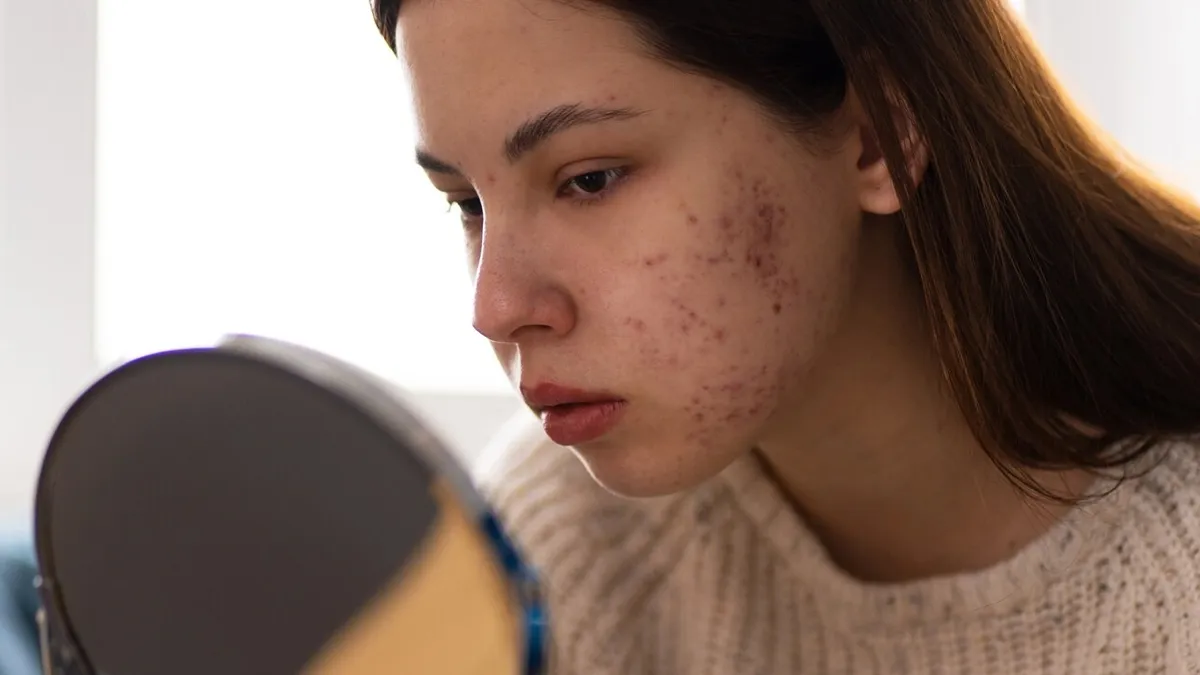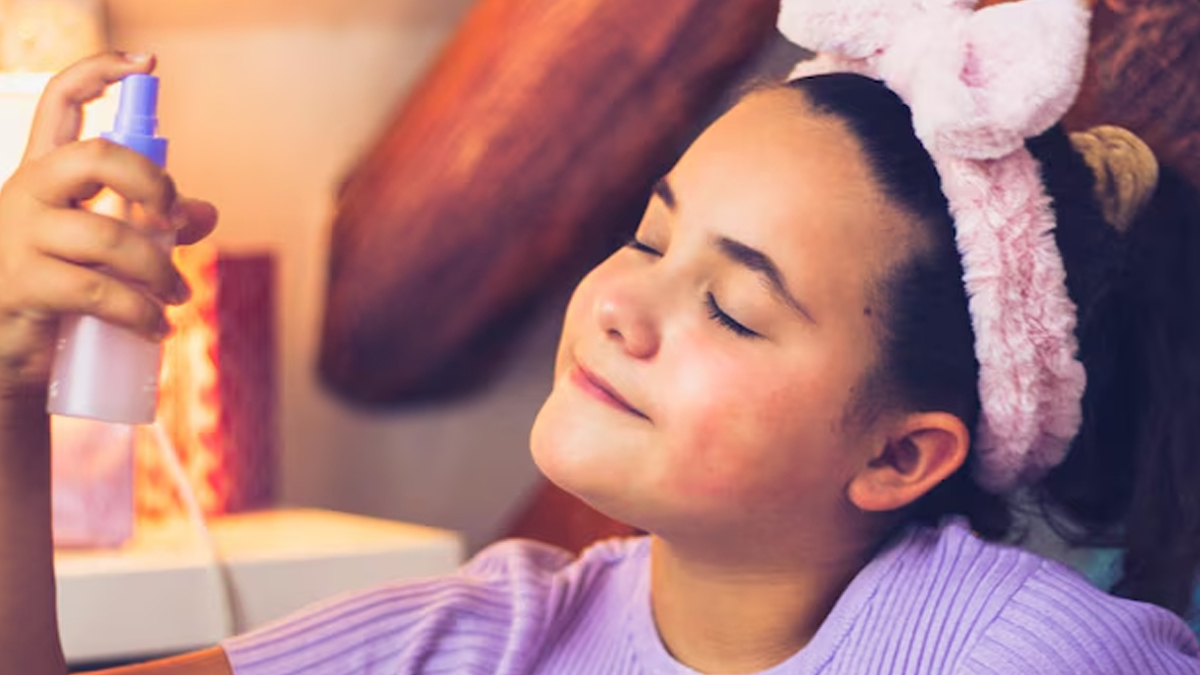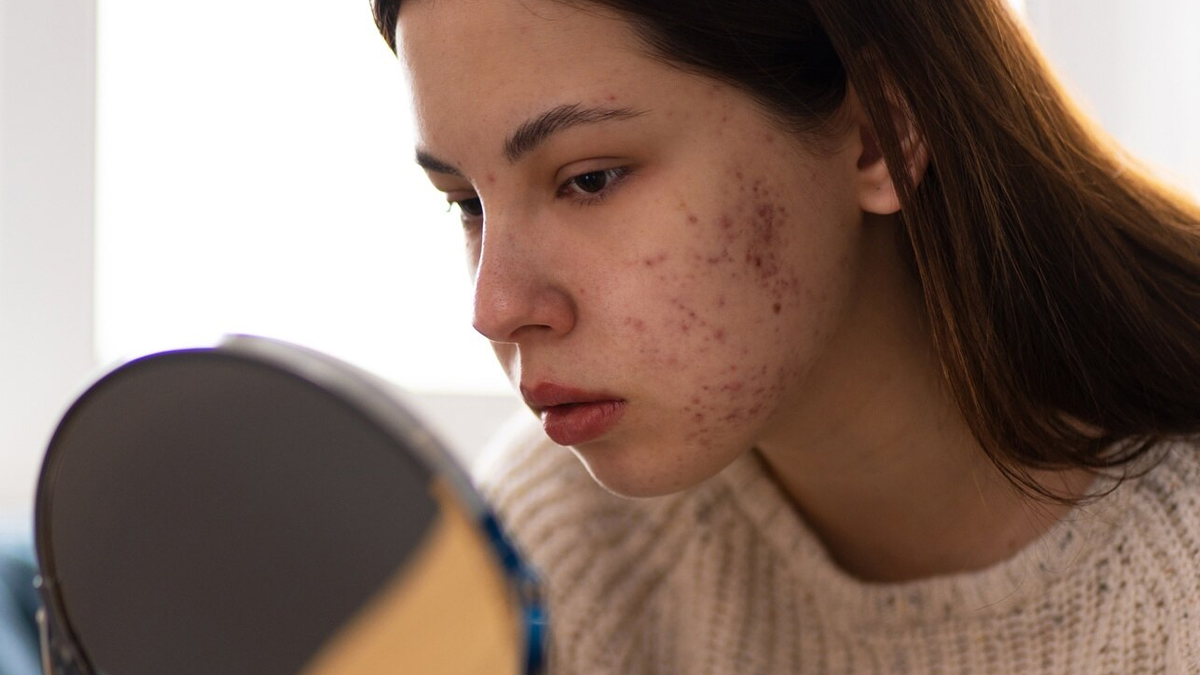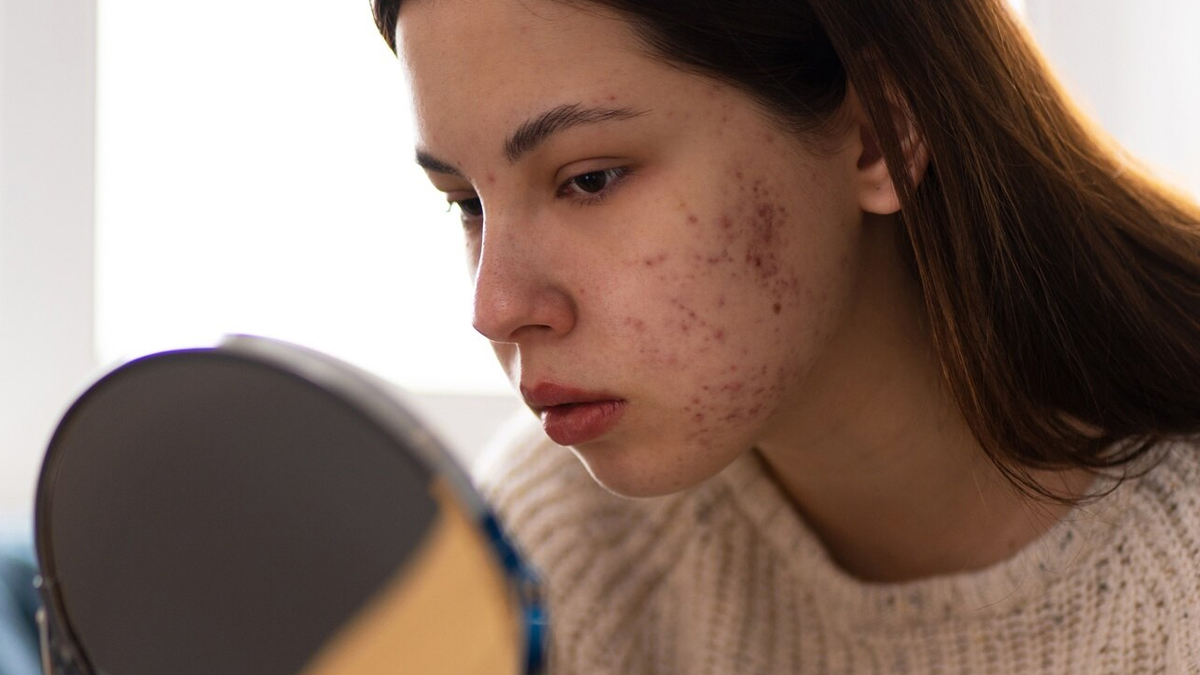
Thanks to viral TikTok and Instagram trends, skincare routines have become a trending topic around the world. However, when teens follow ‘Get Ready With Me’ or ‘My Bedtime Skin Care Routine’ trends, they might be doing more harm than anything else. At one time, these elaborate and viral skincare routines were the remit of adults and elderly people but now, they have entered the daily lives of teenagers and even tweens. Whether it is through direct advertisement or social media reels, the branding and packaging have now turned to influence the youngest including school-going children.
Table of Content:-
The age of 9 to 18 is the time of hormonal changes and development. Using viral skincare products like exfoliating acids and chemical peels have come into their reach without knowing what it can do to their skin, potentially causing life-long harm for their changing skin. Dr Priyanka Kuri, Consultant - Dermatology at Aster Whitefield Hospital Bengaluru, shares how these elaborated skincare routines can be damaging for teens and tweens.
Skin Care Trends And Kids Skin
According to a study done by Northwestern Medicine scientists, girls aged 7 to 18 are using an average of six different products on their faces, with some girls using more than a dozen products. Most of these skin care products have a high number of younger consumers but they are not marked for the younger generation.
Komal Patel from Ahmedabad, Gujarat, shared, “When my daughter turned nine, I introduced mild soap like Pears and Dove, regular adult body lotions, but her skin did not feel the same. Now she is near puberty and uses quite a simple skincare routine. I have noticed a slight pigmentation difference.”
Also Read: Should You Apply Sunscreen To Chickenpox Scars? We Asked An Expert
Naina from Bareilly, UP, shared that, “ My daughter is 14 and sometimes, she comes to me demanding a particular skin care product that I haven’t heard of. What I feel is that because of these chemicals, her skin does not feel like a child’s skin at such a young age.”
According to Dr Priyanak Kuri, “Teenage skin is a bit oily, as it is a side effect of hormonal changes, and the use of multiple ingredients disrupts the balance, often damaging the natural skin barrier. This may lead to skin barrier dysfunction, and be more susceptible to infections, breakouts, and inflammations.”
“There are situations where teenagers get contact dermatitis or post-inflammatory hyperpigmentation, which may require a long healing period. Irritated skin becomes more sensitive to UV rays and air pollution generating life long allergies for tweens skin,” she further explains.
Another major risk which mostly goes unnoticed is that there are numerous skincare products that contain ingredients linked to diseases like cancer. Carcinogen like formaldehyde and endocrine disrupter such as benzene found in shampoos, dry shampoos, sunscreen and other spray products that has become an inseparable part of daily lives.
Adult Skincare Products Are Not Safe For Kids
“One day, I was applying a rational cream before going to sleep. A few minutes later, I noticed my daughter was also doing the same thing. I realised she was using retinol quite often, and that was making her skin quite red and patchy, ” Naina shared.
During the conversation, Dr Kuri mentioned that there are chemicals in numerous skincare products which are not supposed to be in contact with tweens’ skin. “Components like retinol, AHAs, BHAs, and highly concentrated vitamin C formulas can be a source of considerable skin problems for teenagers. Especially retinol is a product for aged skin with slow cell renewal, it can cause peeling with young skin.”
Also Read: Irritated With Frequent Red, and Burning Face? Here's What You Should Do
“One patient combined glycolic acid, retinol, and vitamin C usage, thinking that her skin would get brighter, but what happened was that she got a severe case of peeling and inflammation,” Dr Kuri continued.
Fragrances and essential oils in trendy clean beauty products are also the reason for the development of allergic symptoms in the users. Even acids, if they are used in layers or every day, can take the skin's natural protective oils away.
Fuel By Social Media And Mental Toll
Experts consider that social media platforms such as TikTok and Instagram have a high influence, presenting these trends as glamorous ten-step routines without explaining the details. Eventually, these skin care obsession can also cause serious mental health issues along with physical harms.
Dr Kuri explained, “A teen may see a link between taking care of their skin and their popularity or self-worth. The influence of peers raises the pressure to fit in or do the same as influencers. Sadly, these viral trends hardly ever take into account skin type, weather, or age which causes the teens to be misled and misuse their skincare.“ She further added that constant exposure to such things results in a teen having unrealistic expectations and a distorted view of what healthy skin looks like.
Dr Kuri also highlights that the Internet's so-called definition of perfect skin, like glass skin, can lead to Body Dysmorphic Disorder (BDD) and other mental disorders. “Excessive use of make-up and products to fix things that should not even be considered as flaws may indicate the occurrence of BDD or skin-related anxiety,” she stated.
Gap In Regulations And Knowledge
When the internet is flooded with information, there is a huge gap in factual knowledge and regulations in the skin care industry. Along with children, even parents have no idea about the dangers because the products advertise using dermatologist-tested statements.
Dr Kuri mentioned, "A lot of cosmetic brands intentionally advertise their products to the youth through social media personalities without revealing the suitable age and side effects.” Words like skin renewal or anti-aging are very attractive for the curious ones but they actually deceive teenagers into thinking that they need these products.
Also Read: Why Do Retinoids Make Your Skin Worse Before It Gets Better? Expert Tells
Dermatologist Recommend Skin Care Routine For School Going Kids
Dr kuri recommended to follow a simple and gentle skin care routine for school going children with minimum chemical exposure. Here is a three-step skin care routine suggested by Dr Kuri that would work for most teens:
- Gentle cleansing (without actives or alcohol-based formulas)
- A light, non-comedogenic moisturiser
- Broad-spectrum sun protection (SPF 30+) every morning
The dermatologist, in case of acne, may recommend a mild salicylic acid cleanser or local treatment. The point is to be simple and consistent rather than to experiment with already changing skin.
Bottomline
The age between 9 to 18, is when kids are going through sensitive emotional and hormonal changes. This requires extra care of their feelings and choices. In case a teenager is suffering from unrelieved redness, irritation, burning sensations, or unusual breakouts, one should immediately consult a dermatologist as early intervention is the best safeguard against both physical and emotional damage.
Also watch this video
FAQ
Is skincare safe for teenagers?
Using viral skincare products like exfoliating acids, retinols, and chemical peels on teenage skin can cause redness, irritation and acne.What is bad for teenage skin?
Components like retinol, AHAs, BHAs, and highly concentrated vitamin C formulas can be a source of considerable skin problems for teenagers.What is a good routine for teen skin?
Dermatologist recommended to follow a simple and gentle skin care routine for teen skin which includes non alcoholic cleanser, moisturiser and a sunscreen.Does a skin care routine have side effects?
Yes, viral and elaborate skin care routines may cause skin barrier dysfunction, infections, breakouts, and inflammation.
How we keep this article up to date:
We work with experts and keep a close eye on the latest in health and wellness. Whenever there is a new research or helpful information, we update our articles with accurate and useful advice.
Current Version
Nov 07, 2025 15:47 IST
Modified By : Sameeksha SharmaNov 07, 2025 15:47 IST
Published By : Sameeksha Sharma